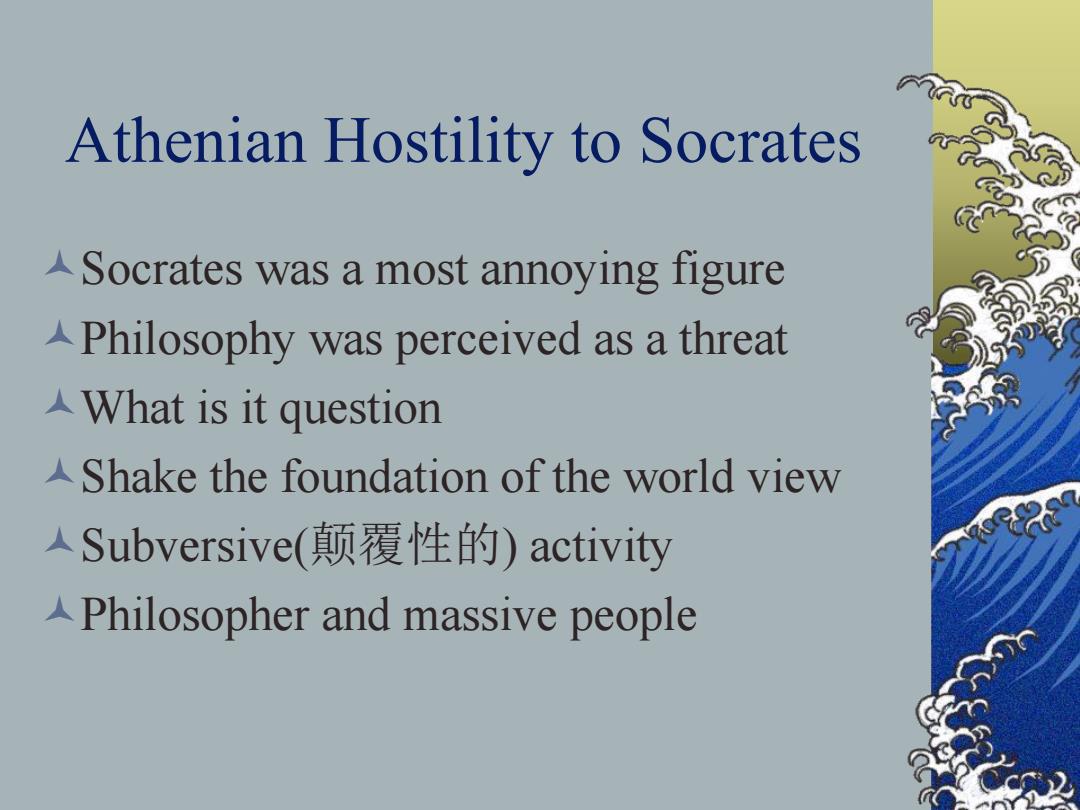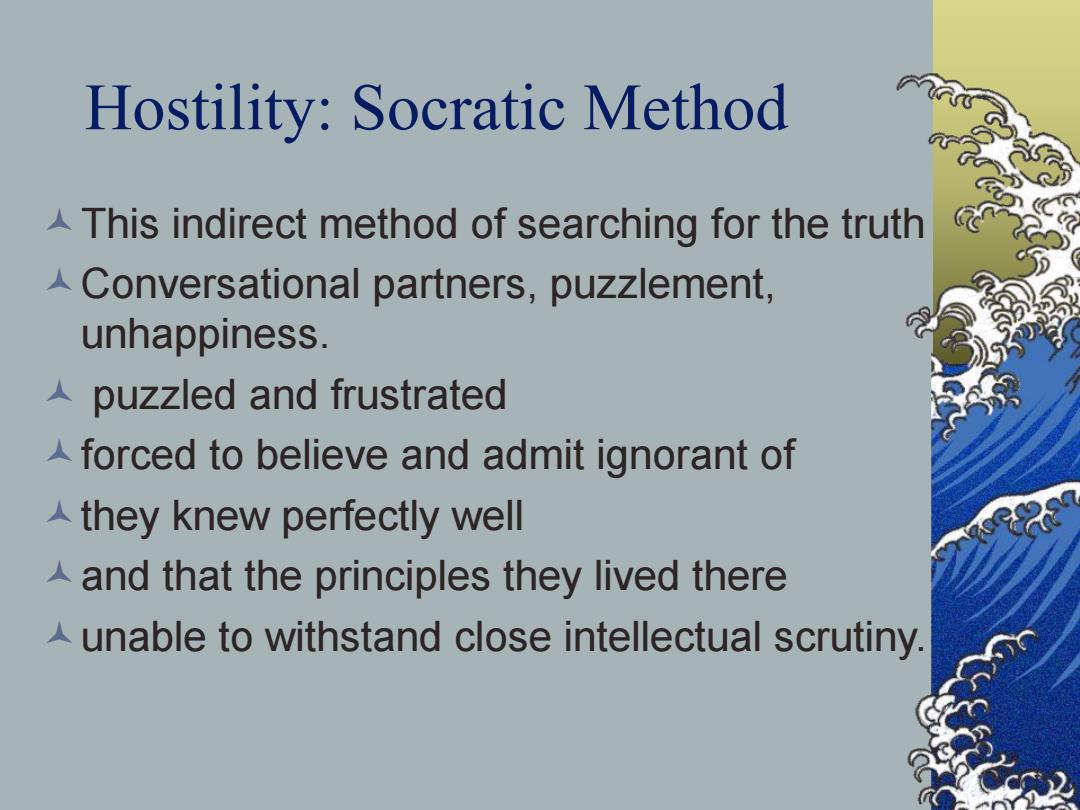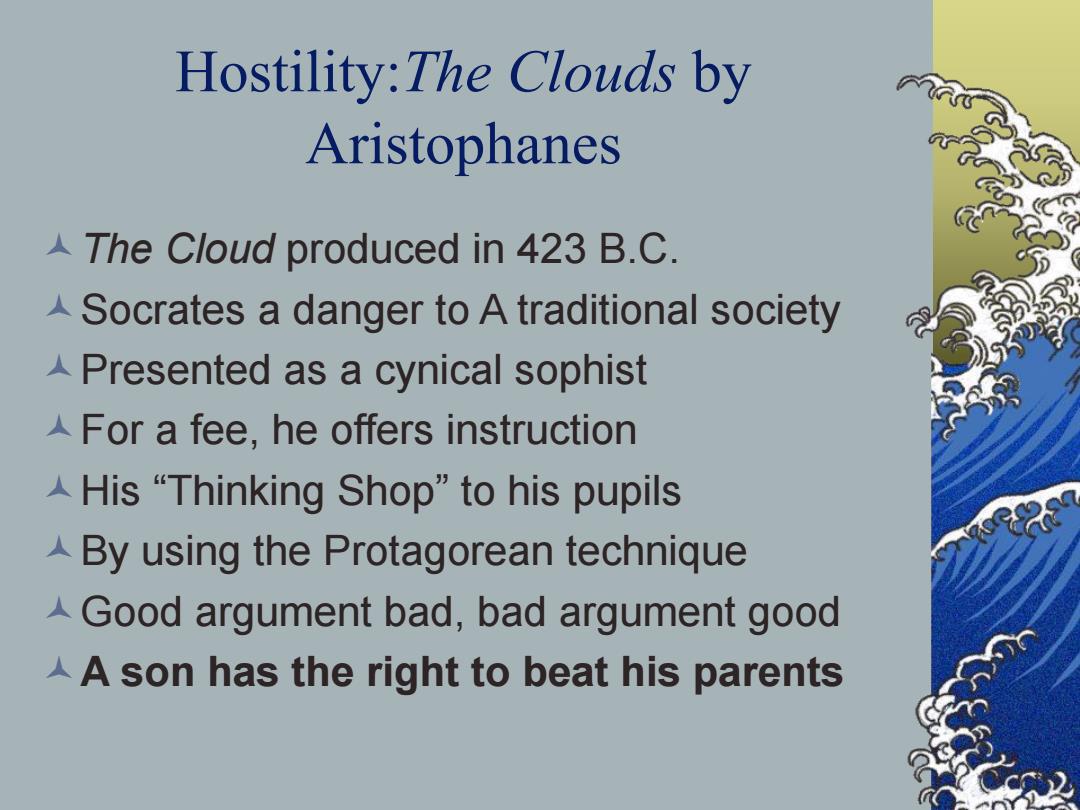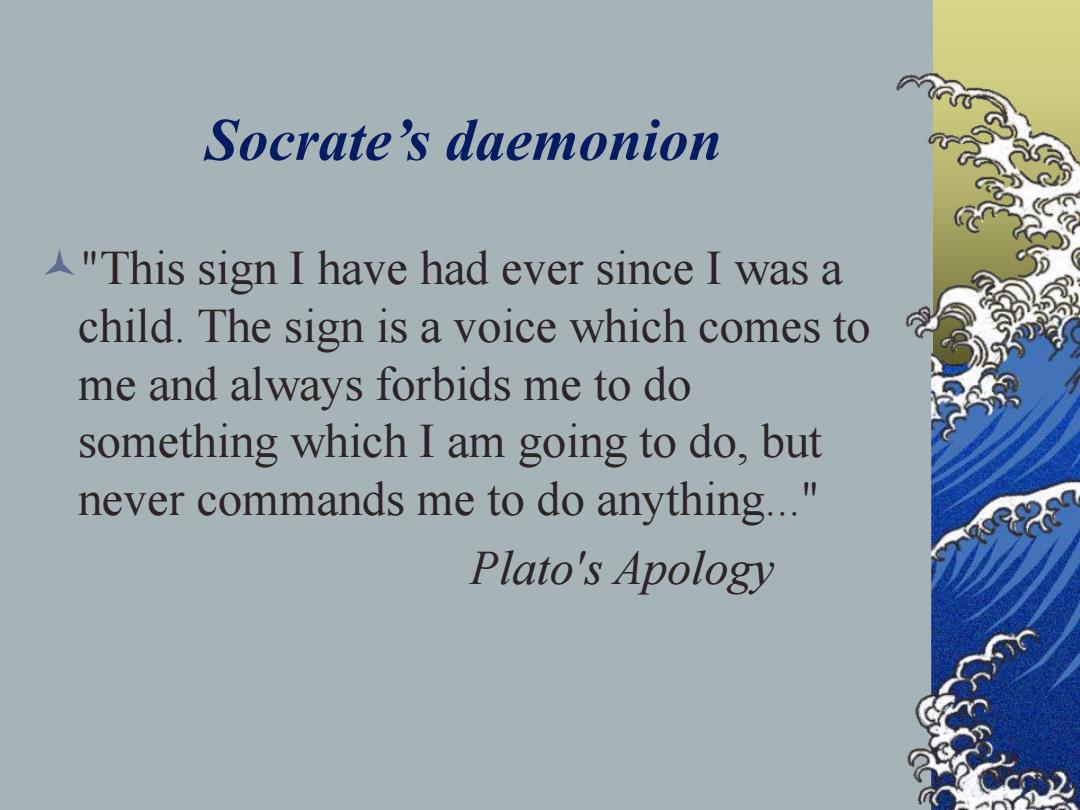
Athenian Hostility to Socrates Socrates was a most annoying figure APhilosophy was perceived as a threat 人What is it question AShake the foundation of the world view 人Subversive(颠覆性的)activity APhilosopher and massive people
Athenian Hostility to Socrates ©Socrates was a most annoying figure ©Philosophy was perceived as a threat ©What is it question ©Shake the foundation of the world view ©Subversive(颠覆性的) activity ©Philosopher and massive people

Hostility:Socratic Method AThis indirect method of searching for the truth A Conversational partners,puzzlement, unhappiness. puzzled and frustrated A forced to believe and admit ignorant of they knew perfectly well A and that the principles they lived there A unable to withstand close intellectual scrutiny
Hostility: Socratic Method ©This indirect method of searching for the truth ©Conversational partners, puzzlement, unhappiness. © puzzled and frustrated ©forced to believe and admit ignorant of ©they knew perfectly well ©and that the principles they lived there ©unable to withstand close intellectual scrutiny

Socrates VS Democracy A Socrates speaking sharply about democracy. "Most people aren't terribly thoughtful or analytical,so why should 'most people',that is, the majority,make the life and death decisions that affect the polis?
Socrates VS Democracy ©Socrates speaking sharply about democracy. “Most people aren’t terribly thoughtful or analytical, so why should ‘most people’ , that is, the majority, make the life and death decisions that affect the polis?

Hostility:The Clouds by Aristophanes AThe Cloud produced in 423 B.C. A Socrates a danger to A traditional society A Presented as a cynical sophist A For a fee,he offers instruction 人His“Thinking Shop”to his pupils A By using the Protagorean technique AGood argument bad,bad argument good AA son has the right to beat his parents
Hostility:The Clouds by Aristophanes ©The Cloud produced in 423 B.C. ©Socrates a danger to A traditional society ©Presented as a cynical sophist ©For a fee, he offers instruction ©His “Thinking Shop” to his pupils ©By using the Protagorean technique ©Good argument bad, bad argument good ©A son has the right to beat his parents

Socrate's daemonion A"This sign I have had ever since I was a child.The sign is a voice which comes to me and always forbids me to do something which I am going to do,but never commands me to do anything..." Plato's Apology
Socrate’s daemonion ©"This sign I have had ever since I was a child. The sign is a voice which comes to me and always forbids me to do something which I am going to do, but never commands me to do anything..." Plato's Apology